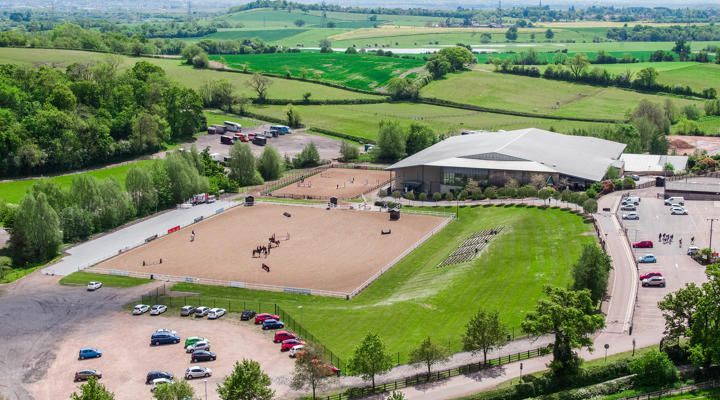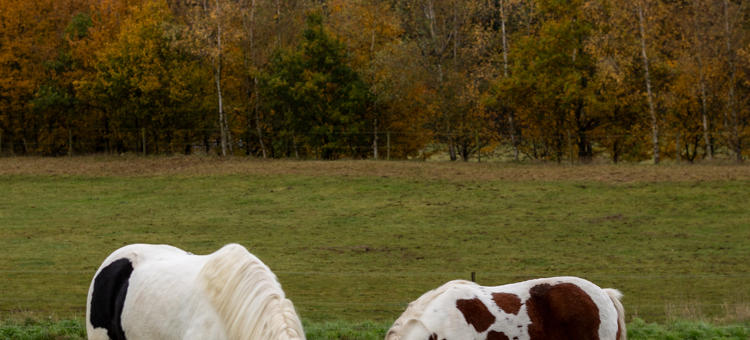Course information
You'll be uniquely equipped to lead equestrian sport into a more sustainable and welfare-driven future. We’ll support you to adopt an innovative and scientific mind-set, building both specialist and transferable skills to help you stand out when you graduate. You’ll explore the science behind sustainable equestrian success while actively promoting a “good life” for all.
Graduates of this course will influence, educate, and drive meaningful change across equestrian welfare, performance, and policy landscapes across the racing, sports and charitable sectors of the industry.
UCAS tariff points | 32-48 UCAS tariff points.
A Levels | EE-DD or equivalent from at least one full A Level.
Vocational Awards | PPP in an Extended Diploma.
Access | 32-48 UCAS tariff points in an Access to Higher Education Diploma.
International Baccalaureate | 32-48 UCAS tariff points in an IB Diploma, to include one Higher at H3 or above.
Scottish Highers | 32-48 UCAS tariff points from at least one Higher. You must have completed two years study at Higher Level.
Irish Leaving Certificate | 32-48 UCAS tariff points from at least one Higher.
T Level | An overall grade of Pass.
Additional Information
In addition to the above, we require a minimum of five GCSEs at grade 9-4 (A*-C), to include English and Maths. We will consider equivalencies including but not limited to functional skills level 2, Irish Ordinary level, National 5s, IB standard level.
We will consider combinations of level three qualifications.
We welcome applications from individuals with equivalent, non-UK qualifications and mature students (over 21). We may interview as part of the application process.
International students
Please read the entry requirements for your country and contact our admissions team if you have any questions.
Your support network
You'll benefit from a strong support network from day one to be the best you can be. This will range from your personal tutor and specialist academic support team (our Achievement and Success Centre) to dedicated wellbeing and employability (Employability, Skills and Careers) centres.
Academic support
You’ll have your own personal tutor while you’re here who will support you to succeed in your studies. You’ll also have access to our academic and wellbeing support teams who run regular workshops and one-to-one sessions on campus and online.
Alongside this, we have a comprehensive bank of online study skills resources to help you make the most of your qualification.
Your learning experiences
You'll experience a range of teaching methods to strengthen your digestion of topics, including lectures, workshops and practical sessions, as well as supported work placement learning as part of many courses.
Your career
Each year of your course will be made up of two semesters, within which you’ll study compulsory and optional modules on different industry-focused topics, enabling you to develop your own unique portfolio of knowledge, skills and experience, ready for your career. The course is taught in English.
Course information
Overview
You'll be uniquely equipped to lead equestrian sport into a more sustainable and welfare-driven future. We’ll support you to adopt an innovative and scientific mind-set, building both specialist and transferable skills to help you stand out when you graduate. You’ll explore the science behind sustainable equestrian success while actively promoting a “good life” for all.
Graduates of this course will influence, educate, and drive meaningful change across equestrian welfare, performance, and policy landscapes across the racing, sports and charitable sectors of the industry.
Entry requirements
UCAS tariff points | 32-48 UCAS tariff points.
A Levels | EE-DD or equivalent from at least one full A Level.
Vocational Awards | PPP in an Extended Diploma.
Access | 32-48 UCAS tariff points in an Access to Higher Education Diploma.
International Baccalaureate | 32-48 UCAS tariff points in an IB Diploma, to include one Higher at H3 or above.
Scottish Highers | 32-48 UCAS tariff points from at least one Higher. You must have completed two years study at Higher Level.
Irish Leaving Certificate | 32-48 UCAS tariff points from at least one Higher.
T Level | An overall grade of Pass.
Additional Information
In addition to the above, we require a minimum of five GCSEs at grade 9-4 (A*-C), to include English and Maths. We will consider equivalencies including but not limited to functional skills level 2, Irish Ordinary level, National 5s, IB standard level.
We will consider combinations of level three qualifications.
We welcome applications from individuals with equivalent, non-UK qualifications and mature students (over 21). We may interview as part of the application process.
International students
Please read the entry requirements for your country and contact our admissions team if you have any questions.
Employability
Your career
How you'll study
Your support network
You'll benefit from a strong support network from day one to be the best you can be. This will range from your personal tutor and specialist academic support team (our Achievement and Success Centre) to dedicated wellbeing and employability (Employability, Skills and Careers) centres.
Academic support
You’ll have your own personal tutor while you’re here who will support you to succeed in your studies. You’ll also have access to our academic and wellbeing support teams who run regular workshops and one-to-one sessions on campus and online.
Alongside this, we have a comprehensive bank of online study skills resources to help you make the most of your qualification.
Your learning experiences
You'll experience a range of teaching methods to strengthen your digestion of topics, including lectures, workshops and practical sessions, as well as supported work placement learning as part of many courses.
Your career
Each year of your course will be made up of two semesters, within which you’ll study compulsory and optional modules on different industry-focused topics, enabling you to develop your own unique portfolio of knowledge, skills and experience, ready for your career. The course is taught in English.
Modules
What you'll study
On this course, you’ll cover a range of fundamental performance and welfare topics through a combination of compulsory and optional modules, which you’ll be able to choose from to suit your interests and career goals.
Compulsory topics will include management of equestrian performance and wellbeing, equine learning and cognition, current equestrian training practices, and assessment of equine quality of life.
Optional modules change each year in line with student, industry and research demands - you'll find recent topics studied below. You can attend introductory sessions for optional modules before deciding which ones to study.
Module credits
On successful completion of your modules you’ll gain academic credit that accumulates towards your award. The marks you gain in your second and third years may contribute towards your final degree classification.
Your foundation year will focus on study skills and specific knowledge around human-animal interactions. This will support you moving into year one. In addition, you’ll be introduced to equine science and the equine industry.
Compulsory Modules
Understand and explore topics including the scientific method and enquiry, team working, research skills, and effective time management.
An opportunity to explore graduate destinations associated with your programme of study, building a portfolio of experiences aiding your professional development.
Develop understanding and knowledge of literature reviews including constructing a rationale and summarising and presenting relevant information to suit a purpose, subject and audience.
The module aims to introduce central anatomy, physiology, welfare and health that underpin best husbandry and management practices, along with key legislation and health and safety requirements in the equine industry.
This module covers the learning and understanding of the balance of theory and practice in contemporary business practice; an appreciation of the complexity of modern organisational environments and the critical role of enterprise and innovation.
You'll focus on key topics relating to equine performance and welfare to gain knowledge and fundamental study skills that underpin your course and will equip you to study at higher levels. You’ll also learn about equine anatomy and physiology, whilst studying the equine industry. You'll also begin to explore human behaviours and interactions to gain skills for influencing future change.
Compulsory Modules
Equitation Science
Discover how horses learn through evidence-based principles, and explore how environment and training methods influence behaviour, welfare, and performance across equestrian disciplines.
Equestrian Practice
Developing acceptable industry standards of practice and explore the principles behind them.
Introduction to Horse Human Interactions
Explore how humans and horses interact across a range of equine-based activities and examine the role people play in shaping these experiences.
Equine Structure and Function
Learn about the biological systems of the horse, how they interact, and how they can be managed.
Equine Industry
Discuss the scope and management of the equine industry in the UK and Europe.
You'll begin to cover more in-depth topics, taking the fundamental knowledge learned in year one to explore the key factors and principles which underpin performance and welfare measurements in more detail. Subjects evolve into understanding about horse management practices during the other 23 hours that they are not being ridden, whilst learning about developing a sustainable equestrian industry. You'll also be supported to complete practical time as a mentor on the Hartpury yard during the second year of study, giving you the opportunity to develop your own leadership skills and gain first hand understanding of the challenges.
Compulsory Modules
Sustainable Equestrianism
Using the Triple E model as a framework, this module helps students understand how to create a sustainable model of practice for the equine sector.
The Other 23 Hours
This module evaluates the management practices of horses outside of ridden activity, with the aim of promoting a good life for horses. This module will include 100 hours of industry placement.
Equestrian Research Methods
An introduction to research methods and analysis in equestrian performance, welfare & coaching, helping to prepare them for conducting research projects in the future.
Equine Performance, Fitness and Training
Explore how exercise physiology, fitness training, and biomechanical principles apply to performance horses, linking conformation and movement to athletic ability, discipline-specific demands, and injury risk.
One Welfare in the Equine Industry
Explore the interconnected wellbeing of horses, humans, and the environment through the One Welfare framework, and learn how to assess equine welfare in both ridden and non-ridden contexts.
Integrated Placement Year (optional)
An integrated placement year before your final year allows you to put your knowledge and skills into practice and gain valuable industry experience. Many students get their graduate careers with the organisation with which they completed their work placement.
Your final year allows you to develop and refine your knowledge and skillset that will support you in your future career. One module is dissertation, a substantial research project that enables you to experience being responsible for planning, implementing and reporting on a specialist topic.
In addition, you'll be exposed to contemporary challenges, developments, ethics and welfare involved within equestrian research and culture, gaining an insight into where current research is focussing to promote one health and welfare to horses, humans and the environment.
Compulsory Modules
Undergraduate Dissertation
Partake in independent research and analysis in a related area of your choice.
Developments in Equine Research
Investigate advances in equine research and its application to the equine industry.
Challenging Equestrian Culture
Explores how equestrian practices and policies evolve over time and equips students to critically evaluate current norms and contribute to the transition toward more ethical, inclusive, and sustainable equestrian cultures.
Optimising Rider Performance for Equine Welfare
Examine the physical and biomechanical demands placed on riders across disciplines, and explore how rider fitness, balance, and training practices impact equine welfare.
Equine Ethics and Welfare
Students will build their knowledge of ethical philosophy and key equine welfare contributors/research to enable discussion of contemporary industry issues.
Modules
Overview
What you'll study
On this course, you’ll cover a range of fundamental performance and welfare topics through a combination of compulsory and optional modules, which you’ll be able to choose from to suit your interests and career goals.
Compulsory topics will include management of equestrian performance and wellbeing, equine learning and cognition, current equestrian training practices, and assessment of equine quality of life.
Optional modules change each year in line with student, industry and research demands - you'll find recent topics studied below. You can attend introductory sessions for optional modules before deciding which ones to study.
Module credits
On successful completion of your modules you’ll gain academic credit that accumulates towards your award. The marks you gain in your second and third years may contribute towards your final degree classification.
Level three foundation year (year one)
Your foundation year will focus on study skills and specific knowledge around human-animal interactions. This will support you moving into year one. In addition, you’ll be introduced to equine science and the equine industry.
Compulsory Modules
Understand and explore topics including the scientific method and enquiry, team working, research skills, and effective time management.
An opportunity to explore graduate destinations associated with your programme of study, building a portfolio of experiences aiding your professional development.
Develop understanding and knowledge of literature reviews including constructing a rationale and summarising and presenting relevant information to suit a purpose, subject and audience.
The module aims to introduce central anatomy, physiology, welfare and health that underpin best husbandry and management practices, along with key legislation and health and safety requirements in the equine industry.
This module covers the learning and understanding of the balance of theory and practice in contemporary business practice; an appreciation of the complexity of modern organisational environments and the critical role of enterprise and innovation.
Level four (year two)
You'll focus on key topics relating to equine performance and welfare to gain knowledge and fundamental study skills that underpin your course and will equip you to study at higher levels. You’ll also learn about equine anatomy and physiology, whilst studying the equine industry. You'll also begin to explore human behaviours and interactions to gain skills for influencing future change.
Compulsory Modules
Equitation Science
Discover how horses learn through evidence-based principles, and explore how environment and training methods influence behaviour, welfare, and performance across equestrian disciplines.
Equestrian Practice
Developing acceptable industry standards of practice and explore the principles behind them.
Introduction to Horse Human Interactions
Explore how humans and horses interact across a range of equine-based activities and examine the role people play in shaping these experiences.
Equine Structure and Function
Learn about the biological systems of the horse, how they interact, and how they can be managed.
Equine Industry
Discuss the scope and management of the equine industry in the UK and Europe.
Level five (year three)
You'll begin to cover more in-depth topics, taking the fundamental knowledge learned in year one to explore the key factors and principles which underpin performance and welfare measurements in more detail. Subjects evolve into understanding about horse management practices during the other 23 hours that they are not being ridden, whilst learning about developing a sustainable equestrian industry. You'll also be supported to complete practical time as a mentor on the Hartpury yard during the second year of study, giving you the opportunity to develop your own leadership skills and gain first hand understanding of the challenges.
Compulsory Modules
Sustainable Equestrianism
Using the Triple E model as a framework, this module helps students understand how to create a sustainable model of practice for the equine sector.
The Other 23 Hours
This module evaluates the management practices of horses outside of ridden activity, with the aim of promoting a good life for horses. This module will include 100 hours of industry placement.
Equestrian Research Methods
An introduction to research methods and analysis in equestrian performance, welfare & coaching, helping to prepare them for conducting research projects in the future.
Equine Performance, Fitness and Training
Explore how exercise physiology, fitness training, and biomechanical principles apply to performance horses, linking conformation and movement to athletic ability, discipline-specific demands, and injury risk.
One Welfare in the Equine Industry
Explore the interconnected wellbeing of horses, humans, and the environment through the One Welfare framework, and learn how to assess equine welfare in both ridden and non-ridden contexts.
Integrated Placement Year (optional) / Level Six (final year)
Integrated Placement Year (optional)
An integrated placement year before your final year allows you to put your knowledge and skills into practice and gain valuable industry experience. Many students get their graduate careers with the organisation with which they completed their work placement.
Your final year allows you to develop and refine your knowledge and skillset that will support you in your future career. One module is dissertation, a substantial research project that enables you to experience being responsible for planning, implementing and reporting on a specialist topic.
In addition, you'll be exposed to contemporary challenges, developments, ethics and welfare involved within equestrian research and culture, gaining an insight into where current research is focussing to promote one health and welfare to horses, humans and the environment.
Compulsory Modules
Undergraduate Dissertation
Partake in independent research and analysis in a related area of your choice.
Developments in Equine Research
Investigate advances in equine research and its application to the equine industry.
Challenging Equestrian Culture
Explores how equestrian practices and policies evolve over time and equips students to critically evaluate current norms and contribute to the transition toward more ethical, inclusive, and sustainable equestrian cultures.
Optimising Rider Performance for Equine Welfare
Examine the physical and biomechanical demands placed on riders across disciplines, and explore how rider fitness, balance, and training practices impact equine welfare.
Equine Ethics and Welfare
Students will build their knowledge of ethical philosophy and key equine welfare contributors/research to enable discussion of contemporary industry issues.
The modules contain a mixture of scheduled learning – lectures, workshops and practical sessions – alongside independent learning - students are expected to dedicate at least two to three hours of independent study per contact hour. Your course will also include work placement learning as part of some modules.
The course is taught in English.
This programme is currently undergoing consultation but it is estimated that the course will comprise of the following teaching modes.
| Year | Contact learning | Independent learning | Placement learning |
| Level three foundation year (year one) | 24% | 76% | 0% |
| Level four (year two) | 24% | 76% | 0% |
| Level five (year three) | 19% | 69% | 12% |
| Placement year (optional) | 1% | 19% | 80% |
| Level six (final year) | 17% | 83% | 0% |
Assessments take place through a mixture of written exams, practical exams and written assignments. Many of the modules will be marked based on a mixture of assessment types, whilst others will be based solely on one type of assessment. Feedback will be given informally during scheduled learning and formally following each assessment.
This programme is currently undergoing consultation but it is estimated that the course will comprise of the following assessment methods.
| Year | Written exam | Coursework | Practical exam |
| Level four (year one) | 19% | 33% | 48% |
| Level five (year two) | 8% | 58% | 34% |
| Placement year (optional) | 0% | 100% | 0% |
| Level six (final year) | 0% | 64% | 36% |
This programme is taught over two semesters, normally consisting of 12 weeks of scheduled teaching and then assessment weeks.
- Scheduled teaching takes place between 8:30 to 20:30 Monday to Friday
- Wednesday afternoons are normally reserved for sports and cultural activities
- Work placements may entail different days and hours
- Part-time students may need to attend learning activities five days each week, depending on modules selected
- Timetables are available during enrolment week
Our Resource Library is where you'll find all the essential details about Hartpury University's courses. It includes Programme and Module Specifications, along with Course Information Sheets for every course. You can easily download a complete revision history for each of these, clearly showing the dates changes were made.
Course Information Sheets: These are PDF versions of the course webpages. They provide an overview of the course, what to expect during your studies, and the topics covered.
Programme Specifications: These are detailed, validated documents containing academic specifics for each programme. They include descriptions of the programme, its aims, learning outcomes, year and module structure, as well as teaching, learning, and assessment strategies.
Module Specifications: Each Programme consists of several Modules. Our Module Specifications outline the topics covered and the expected outcomes for students studying each Module.
If you’re playing sport competitively, or you have the talent and drive to do so, you may want to join one of our Sports Academies. Over 200 international athletes have developed their talents with us over the past 10 years. You could be our next success story. We're a semi-professional sports environment offering world-class facilities and professional coaching and support services.

Settle into an accommodation option to suit your taste and budget – at Hartpury University, undergraduate students can choose to live on-campus surrounded by Gloucestershire’s beautiful countryside or off-campus in the heart of Gloucester City centre. Enjoy the best of both worlds.

We can help you understand how it all works, and what you need to do next. Find out everything you need to know about tuition fees, student loans and bursaries and scholarships. In 2021/22, we provided assistance to over 1/3 of our students through bursaries, scholarships and grants, totalling a little under £1million.

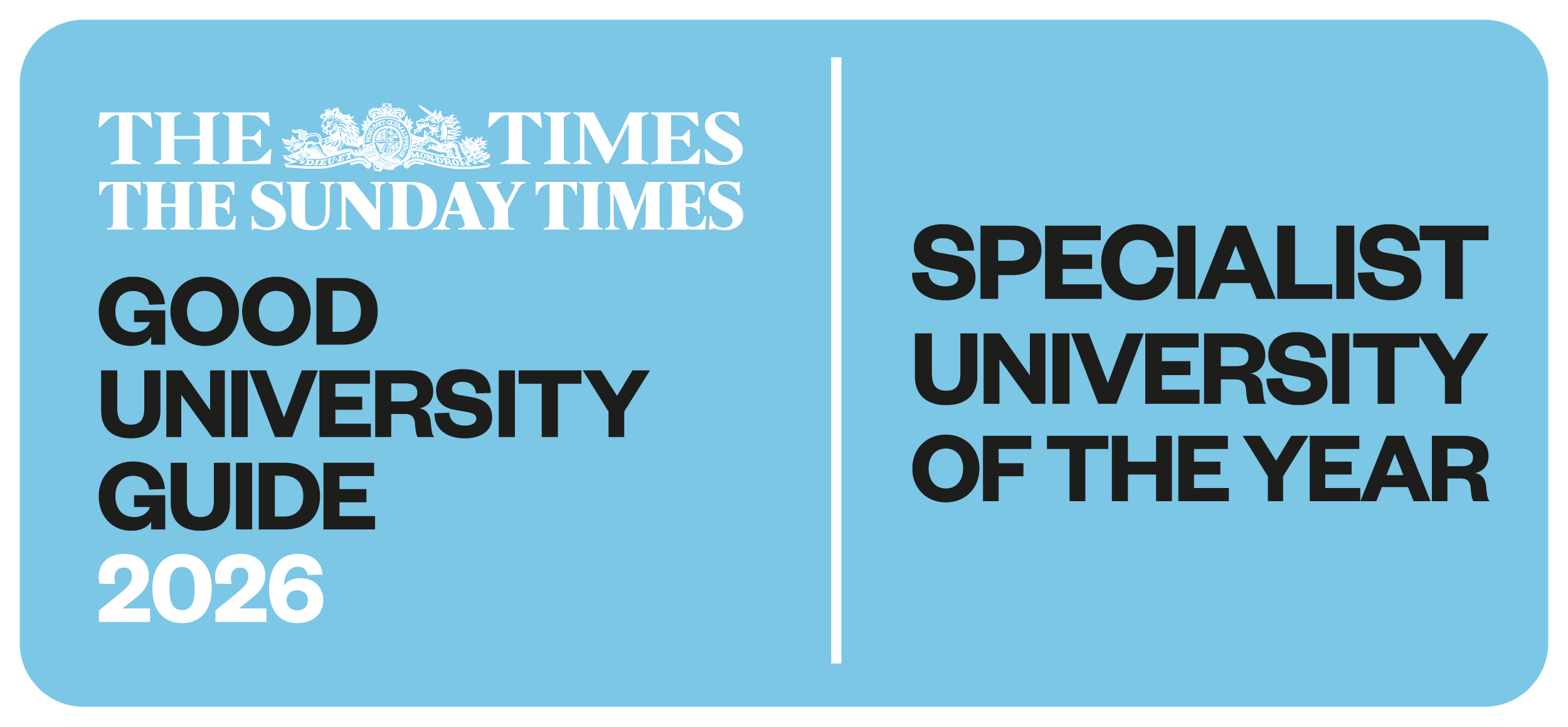
Specialist University of the Year
Hartpury University has been named Specialist University of the Year 2026 – a major national recognition of its exceptional teaching, facilities, and student experience (The Times and The Sunday Times Good University Guide, 2026).

TEF Gold
Our undergraduate provision has been awarded Teaching Excellence Framework (TEF) Gold in all aspects - Overall, Student Experience, and Student Outcomes.
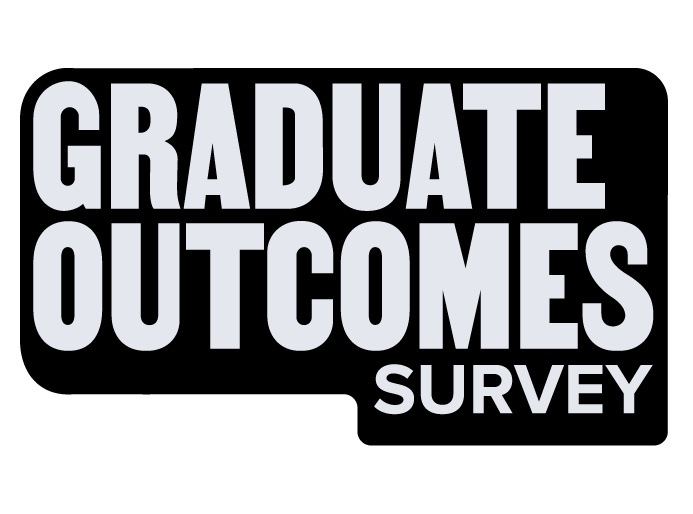
Graduate employability
95% of graduates are in employment, further study or other purposeful activity (Graduate Outcomes 2025).
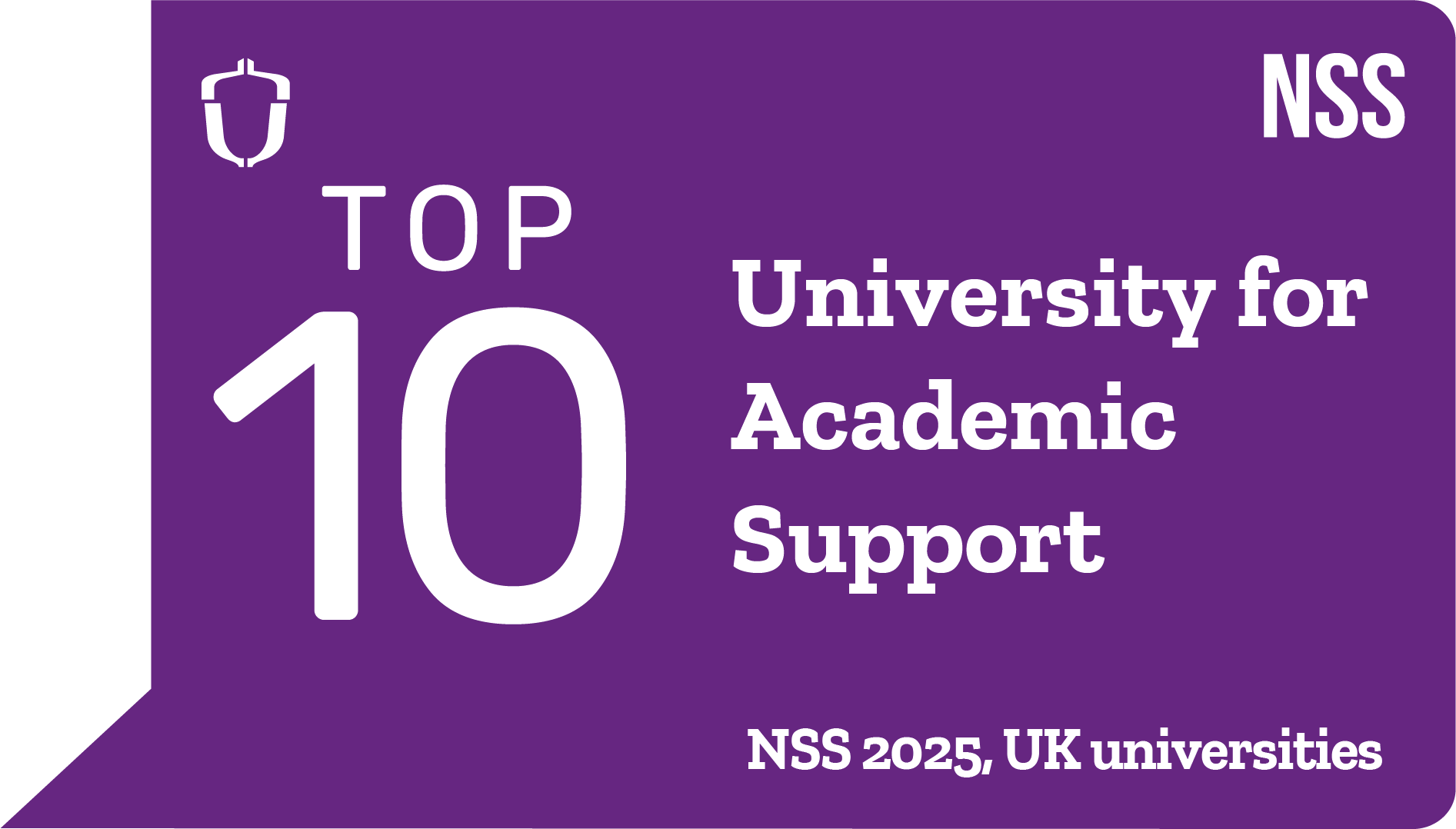
Academic support
We’re a top 10 university for academic support (NSS 2025, UK universities).
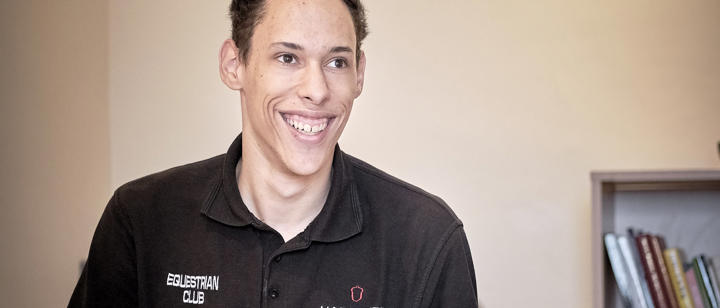
Get in touch
Important information
Every effort has been made to ensure the accuracy of our published course information, however our programmes are reviewed and developed regularly. Changes or cancellation of courses may be necessary to ensure alignment with emerging employment areas, to comply with accrediting body requirements, revisions to subject benchmark statements or as a result of student feedback. We reserve the right to make necessary changes and will notify all offer-holders of changes as and when they occur.


